Online BSN to DNP – Adult-Gerontology Primary Care NP Program
Overview
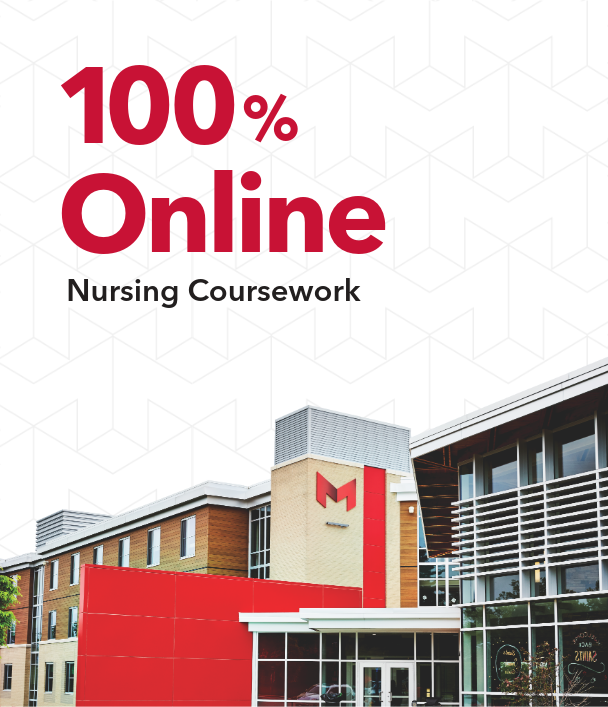
Why choose Maryville’s accredited online BSN to DNP-AGPCNP program?
- Access coursework 100% online with no campus visits required.
- Apply with no GMAT, GRE, or statistics needed.
- Earn your BSN to DNP-AGPCNP in as few as 40 months.
- Get personalized support from application through graduation.
- Complete clinicals locally in your preferred setting.
- Enjoy no waiting list once you’re accepted.

Are you ready to take the next step in your nursing career?
Maryville University’s online BSN to DNP-AGPCNP program is tailored for experienced nurses ready to elevate their careers while specializing in adult-gerontology primary care. This online program is designed to help you achieve one of the highest nursing credentials and learn to lead in delivering comprehensive care for adults and seniors.
Our program emphasizes advanced clinical skills, leadership in healthcare, and evidence-based decision-making. With a focus on primary care, you’ll develop the expertise to excel in managing long-term care for adult and elderly patients in diverse settings.

Our online BSN to DNP Adult-Gerontology Primary Care NP graduates:
- Deliver advanced primary care for adults and seniors with chronic and acute conditions.
- Promote patient-centered care and health prevention strategies.
- Lead initiatives to improve primary care access and outcomes for diverse populations.
- Serve as leaders and advocates in primary care nursing practice.
- Mentor and support the next generation of primary care-focused nursing professionals.

Why choose our online BSN to DNP program?
Hear directly from our expert faculty and staff on what sets Maryville’s online nursing programs apart. Learn how our focus on adult-gerontology primary care can help prepare you for leadership roles in specialized healthcare.

You can learn to lead in healthcare
The demand for nurse practitioners specializing in adult-gerontology primary care is rapidly growing. As healthcare evolves, skilled leaders who can manage chronic conditions and coordinate long-term care are in greater demand than ever.
Maryville’s online BSN to DNP-AGPCNP program equips experienced nurses to step confidently into these roles. Gain the skills and expertise to meet the unique challenges of primary care for adults and seniors.
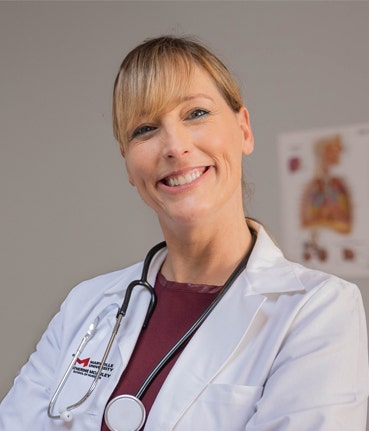
How quickly can you earn your DNP?
As a BSN-prepared nurse, you’ve already built the foundation for your career. Our accelerated BSN to DNP program lets you skip the master’s-level degree and graduate in about three to four years, enabling you to fast-track your education and focus on advanced primary care practice at the doctorate level.
Take the next step to advance your career and make a lasting impact on the health and wellness of adults and seniors.

Benefits of the online BSN to DNP programs:
- Graduate from a program accredited by the Commission on Collegiate Nursing Education (CCNE) and focused on adult-gerontology primary care.
- Save time and money by bypassing your MSN and earning your DNP directly.
- Enjoy the flexibility of a 24/7 online format that fits your schedule.
- Get full, personalized student support and counseling from application through graduation and beyond.
- Conduct research through clinical inquiry courses to enhance evidence-based practices.
- Learn from knowledgeable faculty with deep experience in primary care nursing.
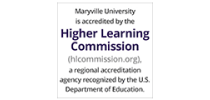

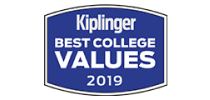


Important dates for 2026
Program details

BSN to DNP-AGPCNP: A deeper look
Our online BSN to DNP program offers a seamless path to earning your DNP while completing the coursework needed to sit for the NP credentialing exam and achieve your NP certification.
This program is designed to prepare you fully for the NP certification exam in adult-gerontology primary care. With your DNP, you can enhance your nursing expertise, advance your practice, or pursue roles in leadership, education, policy, or administration.

Adult-gerontology primary care nurse practitioner (AGPCNP)

Should I choose primary care or acute care?
Our graduate nursing programs give you the choice between adult-gerontology primary care and acute care. Which you choose between the two depends on your career aspirations and personal interests.
Primary care nurses focus on building long-term relationships with patients, managing chronic conditions, delivering preventive care, and promoting overall wellness.
In contrast, acute care nurses handle urgent and critical cases in fast-paced environments like hospitals or emergency rooms.

DNP vs. PhD in Nursing
Nurses at the top of the field often pursue one of two terminal degrees: The DNP or the PhD in Nursing. While a PhD prepares nurses for academic research and teaching, a DNP is tailored for leadership in clinical practice and healthcare systems improvement.
If your goal is to advance patient care, lead in practice-based roles, and improve healthcare outcomes, a DNP is likely the best fit for your career. The DNP also provides flexibility to move into roles in leadership, policy, education, administration, or related fields.

The field needs you now
The need for adult-gerontology primary care nurse practitioners has never been greater. Factors like an aging population, a nationwide shortage of healthcare providers, a focus on preventive care, and a retiring workforce are driving this demand.
The future of healthcare depends on skilled leaders in advanced nursing practice. Earning your BSN to DNP degree allows you to make a meaningful impact where it’s needed most.

Dedicated student support from application through graduation
At Maryville, we’re committed to your success. From the moment you apply to the day you graduate, we provide personalized support and resources to help you thrive in your nursing education.
- Personalized student support advising
- 24/7 technical help desk
- Online study and tutoring services
- Access to the library and other learning tools
Learn more about our dedicated student support coaches here.

Choose your BSN to DNP concentration
If adult-gerontology primary care isn’t your focus, or if you’d like to explore a different area, our BSN to DNP online program offers other concentrations to match your interests and career goals. Specialize in one of these areas:
Careers

What can you do with your BSN to DNP-AGPCNP?
Our online BSN to DNP program is designed to prepare nurses for leadership roles in direct patient care and team management across clinical, educational, and administrative settings.
By earning your BSN to DNP with an Adult-Gerontology Primary Care Nurse Practitioner (AGPCNP) concentration, you’ll be equipped to deliver advanced care to adult and aging populations, focusing on primary care and improving long-term health outcomes.
DNP graduates are prepared to drive meaningful changes in healthcare and enjoy higher earning potential. According to PayScale, DNP-prepared nurses and NPs earn approximately $9,000 more annually than those with a master’s degree alone.

Career prospect statistics for DNP-educated nurses and NPs
- The U.S. Bureau of Labor Statistics projects a 35% growth in advanced nursing roles, such as nurse practitioners (NPs), from 2024 to 2034.
- With an aging population and a growing shortage of primary care physicians, NPs, particularly those specializing in adult-gerontology primary care, are essential to meeting healthcare demands.
- Adult-gerontology primary care NP is one of the top 11 highest-paying nursing careers, according to Indeed.
- While an MSN is the traditional standard for NPs, organizations such as the American Association of Colleges of Nursing (AACN) and the National Organization of Nurse Practitioner Faculties (NONPF) are advocating for the DNP as the future standard for advanced practice.

Online BSN to DNP program graduates career outlook summary
Across the U.S., advanced practice nurses and NPs are taking on more responsibilities and independence, driven by changing healthcare needs, preventative care demand, and staffing shortages. Adult-gerontology primary care nurse practitioners, in particular, are in high demand to address the needs of an aging population in primary care settings.
DNP-educated nurses are uniquely qualified for leadership and advanced roles thanks to their specialized training and expertise.

DNP-educated nursing professionals are industry difference-makers
A DNP credential offers the flexibility to take on meaningful roles in various healthcare areas. In primary care and leadership settings, DNP-trained AGPCNPs are highly valued for their ability to manage chronic conditions, coordinate care, and improve patient outcomes.
Education is another field where DNP professionals make a difference. The AACN reports a significant shortage of nursing faculty, with more than 80,000 qualified applicants turned away from nursing schools due to staffing gaps. DNP-trained nurses are uniquely positioned to address this challenge and inspire the next generation of primary care providers.

What can online BSN to DNP graduates do?
Earning a DNP, the highest practice-focused degree in nursing, provides opportunities that extend far beyond clinical care. Here’s how AGPCNP-trained DNP graduates apply their advanced expertise:
- Teach as a nurse educator in academic or clinical settings.
- Open and manage a private practice focusing on adult-gerontology primary care.
- Lead healthcare teams in executive roles within primary care or outpatient facilities.

What can online BSN to DNP graduates do?
- Drive healthcare policy reforms at local, state, or federal levels.
- Advocate for patient access to quality primary care services.
- Conduct research to improve primary care protocols and health outcomes.
- Open an autonomous practice (24 states now permit those with a DNP to open their own clinics).

What careers can I pursue with my online BSN to DNP degree?
Find out more about DNP and DNP-NP careers here.

What careers can I pursue with my online BSN to DNP degree?
Nurses with a DNP may also explore other opportunities in the field, such as:
- Chief nurse anesthetist
- Chief nursing officer
- Director of nursing services
- Health policy analyst
- Hospital CEO
- Medical and health services manager
- Nursing manager or supervisor
- Nurse midwife
- Nursing professor

Where do BSN to DNP-AGPCNP graduates find job opportunities?
A BSN to DNP with an AGPCNP concentration prepares you for roles in a wide range of primary care and healthcare settings, including:
- Behavioral health clinics
- Community health centers
- Hospitals and clinics
- Long-term care facilities
- Nursing research facilities
- Rehabilitation facilities
- Retirement homes
- Specialty practice, such as cardiology or oncology

What is the typical salary for online DNP program graduates?
DNP roles generally offer competitive salaries and fulfilling career opportunities. PayScale reports that as of 2025, the average base salary for DNP-prepared professionals is around $115,000 per year. Indeed ranks AGPCNP roles among the highest-paying NP specializations.
Primary care-focused roles, like those of AGPCNPs, often command high salaries. The U.S. Bureau of Labor Statistics reported a median NP salary of approximately $129,000 in 2024.

What is the typical salary for online DNP program graduates?
Earnings vary based on location, experience, specialization, and education level. As a DNP-educated AGPCNP, you’ll be well-positioned for advanced, higher-paying* roles in direct patient care, administration, or education.
- Adult-gerontology nurse practitioner (acute or primary care): $108,000
- Chief nursing officer (CNO): $148,000
- Clinical nurse specialist: $104,000
- Director of nursing services: $102,000
- Nurse manager: $98,000
Earn an education with a strong ROI
We’re proud to be recognized among the leaders in social mobility in our region*:
- No. 1 in social mobility among private colleges and universities in the St. Louis area
- No. 1 in lowest average debt among regional private peers
- Top 3 in St. Louis for graduation rates and early-career earnings
These rankings serve as indicators of strong ROI for our graduates — meaning your Maryville education can help you start faster and go further.
Testimonials
“The way that the curriculum is set up at Maryville, each semester built upon the previous one, so we’re learning as we go. It’s not an overwhelming process. A lot of times, that’s much like our careers are in the healthcare field. We all have something new to learn, every single day.”
— Tiffany N., graduate, Doctor of Nursing Practice
“With the DNP, it allows me to become a faculty member, or it allows me to become more understanding of research … in a clinical setting, which is huge. It gave me the self-confidence I have been looking for my whole adult life.”
— Megan J., graduate, Doctor of Nursing Practice
Study with support and graduate with confidence
Ready to elevate your nursing career from BSN to DNP? We're here to guide you with comprehensive support, dedicated advising, and all the resources you need, all on a schedule that fits your demanding life.
2025 grad Ashley Davis, a BSN-prepared nurse and proud mom of three, shares her experience. She earned her DNP by leveraging our flexible online program, finding success through strong faculty communication and personalized guidance.
Curriculum
Ready to advance your nursing career? If you have a Bachelor of Science in Nursing, our online BSN to DNP programs are tailored for you.
Our comprehensive curriculum prepares you to lead as a practitioner, researcher, and decision-maker in advanced nursing roles. Courses include health promotion, pathophysiology, biostatistics, research, and systems leadership, giving you the skills to excel in the field.
The BSN to DNP-AGPCNP program offers three start dates — spring, summer, and fall — and is fully online, combining master’s and doctoral-level coursework.
How long is the accelerated BSN to DNP-AGPCNP program?
Bachelor of Science in Nursing to Doctor of Nursing Practice (BSN to DNP) core courses
BSN to DNP core courses (56 credit hours)
This course explores focused and comprehensive health assessments in a variety of settings and patients across the lifespan. This includes development of health promotion strategies and prioritization of care.
Prerequisite: Online - NURS 611, NURS 615 Corequisite: On Ground - NURS 615
This course focuses on the pharmacological foundation for safely prescribing medical regimens of illnesses for individuals across the lifespan. Also included are illness prevention, non-pharmacological and legal implications for prescriptive authority for the nurse practitioner.
Note: Selection of appropriate therapies, patient education and evaluation parameters are stressed.
This course is designed to introduce students to the purpose, content, and methods of epidemiology and biostatistics. Students will learn to evaluate and use output from statistical computing software.
Prerequisite: NURS 710
This course is designed to explore the phenomenon of interest related to the DNP scholarly project. Students will systematically develop a project protocol that is supported by the literature and submit it for department approval.
Course objectives:
- Develop a clinical question that guides the scholarly project.
- Read critically from professional nursing literature and other related disciplines to interpret, analyze and apply current research to improve practice.
- Apply a systematic approach to address clinical problems within healthcare organizations, including outcome measures and a sustainability plan to create meaningful changes in clinical outcomes.
- Develop a protocol and submit it to the DNP council for project approval.
- Develop the first chapter of the scholarly project that includes needed sections based on the selected DNP project format.
This course is designed to emphasize an objective approach to the integration and synthesis of knowledge. Manuscript preparation and practical use of evidence are incorporated to prepare students for the design of research proposals.
Prerequisite: NURS 700 and NURS 701
This course will allow the students to design an evidence-based project that will guide clinical practice. The feasibility of conducting this initiative will be explored. Potential funding sources and budget issues will be examined. Students will apply the elements of protection of human subjects and complete the Maryville IRB.
Prerequisite: NURS 700, NURS 701, NURS 702, and NURS 703
This course is designed to expand the students knowledge of clinical project data collection and analysis of data. Students will apply integrated research concepts pertaining to the clinical project. Utilization of various methods of data analysis and data management systems will be explored. Complete project data is needed prior to the start of this course.
Prerequisite: NURS 705 and NUS 705L
This course is designed to expand the students understanding of methods of dissemination in translational research. Variables that impact the analysis of data related to the scholarly project will be examined. Implications for patients, clinical practice and the healthcare systems will be explored and findings disseminated.
Prerequisite: NURS 706
This course is designed to provide an understanding of the measurement of phenomena as it relates to the research process. Procedures for selecting, applying, and interpreting the correct statistical application to a research problem will be presented with students processing the results.
Prerequisite: NURS 700
AGPCNP concentration curriculum (18 credit hours)
This course covers the care of adults experiencing acute, chronic and complex health problems of select body systems in this first of two sequential courses. Current research based interventions are analyzed. Individual, family, and group counseling/education for patients and families are incorporated. Included is primary, secondary and tertiary disease prevention and management of complex symptomatology.
Prerequisite: NURS 611, NURS 612, and NURS 615
Corequisite: NURS 621 or NURS 621C
This course will cover the theoretical, clinical and role components of care by an advanced practice nurse and are integrated in a supervised clinical practicum.
Prerequisite: NURS 611, NURS 612, and NURS 615
Corequisite: NURS 620
This course covers the care of adults experiencing acute, chronic and complex health problems of select body systems in this second of two sequential courses. Current research based interventions are analyzed. Individual, family, and group counseling/education for patients and families are incorporated. Included is primary, secondary and tertiary disease prevention and management of complex symptomatology.
Prerequisite: NURS 620 and NURS 621 or NURS 621C
Corequisite: NURS 624 or NURS 624C
This course will cover the theoretical, clinical and role components of care by an advanced practice provider and are integrated in a supervised clinical practicum. Opportunity is provided for the assessment, management, and evaluation of adults with chronic and acute health problems in a primary care setting.
Prerequisite: NURS 620 and NURS 621
Corequisite: NURS 623
The care of adults experiencing acute, chronic, and complex health problems are studied in this course specifically for students in the adult-gerontology nurse practitioner program. The course expands on current research-based interventions unique to adults of varying ages, from wellness to illness. Individual, family, group counseling, and education for patients and families are incorporated. Included is primary, secondary, and tertiary disease prevention and management of complex symptomatology.
Prerequisites: NURS 620, NURS 621, NURS 623, and NURS 624
Corequisite: NURS 627C
This course will cover the theoretical, clinical, and role components of care by an advanced practice nurse are integrated in a supervised clinical practicum. Opportunity is provided for the assessment, management, and evaluation of adults with chronic and acute health problems in a primary care setting.
Prerequisites: NURS 620, NURS 621C, NURS 623, and NURS 624
Corequisite: NURS 626
To ensure the best possible educational experience for our students, we may update our curriculum to reflect emerging and changing employer and industry trends. Undergraduate programs and certificates are designed to be taken at a part-time pace. Please speak to your advisor for more details.
Professional licensure and certification regulations vary from jurisdiction to jurisdiction. Students are encouraged to visit the National Council of State Boards of Nursing for the state in which they intend to practice to verify specific licensure requirements which includes ensuring the program of interest meets the licensure requirements prior to enrolling. Students may visit the professional licensure page or reach out to our team of enrollment advisors for guidance.
Admission requirements
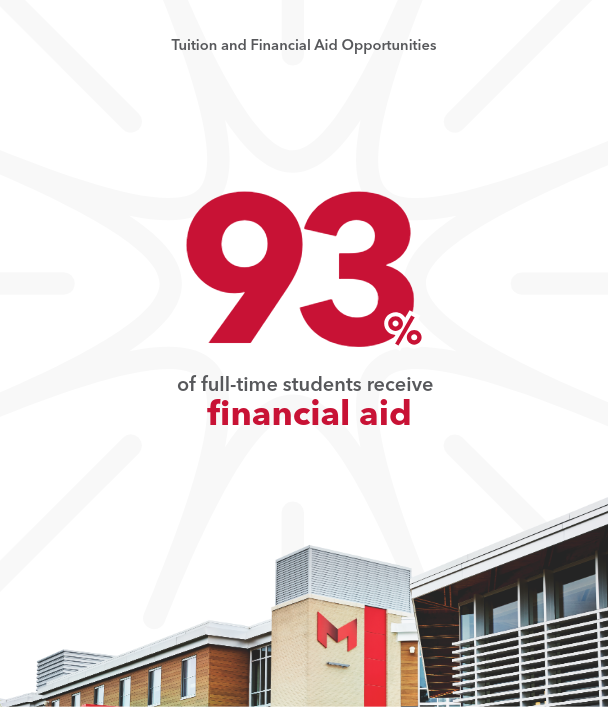
- BSN degree from a regionally accredited institution and CCNE/ACEN/CNEA accredited nursing program
- Cumulative GPA of 3.25 on a 4.0 scale in all college work
- At least one year of professional nursing experience
- Current, unencumbered licensure as an RN in the U.S.
- Official transcripts from every post-secondary school where you earned a degree or completed any graduate-level coursework
- Transfer credit request form

Admission notes
Applicants who do not meet the minimum GPA requirement will be required to submit a personal statement explaining the low grades and outlining plans for improvement.
The acceptance of transfer credit is at the discretion of Maryville University. View our transfer credit policy here.
Maryville’s online nursing programs require students with an international education background to have their BSN from a CCNE/ACEN accredited program for the MSN and BSN-DNP programs, and their MSN from a CCNE/ACEN accredited program for the Post-Master's Certificate, DNP, and DNP-NP programs. Please reach out to an enrollment advisor for more information.
Interested in this degree?

University details
Founded in 1872 — top-rated today
Maryville University is proud to be recognized as one of America’s best colleges by U.S. News & World Report and Forbes.
At Maryville, we invite future nursing leaders to be brave and expand their potential. Let’s be brave together.
Online BSN to DNP degrees: Meet our faculty


Why should learners choose to enroll in the BSN to DNP program at Maryville?

How can nurses address issues of access to healthcare in rural communities?

What are the most important skills employers are looking for?

What advice would you give to someone studying nursing?
Frequently asked questions
What can I do with a BSN to Doctor of Nursing Practice degree?
Maryville’s online BSN to DNP program prepares graduates for success in clinical, nonclinical, educational, and administrative roles. As a terminal degree in nursing, a DNP opens pathways to advanced leadership positions in healthcare policy, nursing education, hospital management, and research.
The Adult-Gerontology Primary Care NP (AGPCNP) concentration equips you with the expertise to care for adults and older patients in primary care settings, helping you provide lifelong, preventive, and chronic care management.
What is the typical salary for BSN to DNP-AGPCNP graduates?
With advanced education, nurses can expand their impact on patient care and leadership. A DNP represents one of two main terminal nursing degrees at the highest level of nursing education, helping graduates improve outcomes for patients and populations.
For those specializing in adult-gerontology primary care, a DNP-AGPCNP program provides focused training in managing the health of adults and older adults in outpatient and long-term care settings. This specialized education equips nurses to take on roles in direct patient care as well as leadership positions in administration, research, education, and policy.
A BSN to DNP-AGPCNP degree also positions graduates for additional certifications in primary care while enhancing their ability to deliver evidence-based, patient-focused care.
Graduates of Maryville’s BSN to DNP-AGPCNP program are eligible to sit for the Adult-Gerontology Primary Care Nurse Practitioner (AGPCNP-BC®) certification exam offered by the ANCC.
Maryville nursing graduates consistently surpass national average pass rates on NP certification exams, reflecting the program’s quality and rigor.
Deciding between a BSN to DNP and an MSN depends on your goals. A DNP is ideal for nurses aspiring to advanced practice leadership, healthcare innovation, or administrative roles, while an MSN is better suited for those focusing on transitioning into NP positions or specific specialties.
Maryville’s BSN to DNP program allows BSN-prepared nurses to bypass the MSN and earn a doctorate on an accelerated path, which can open doors to advanced career opportunities. However, if your primary goal is to gain NP certification and enhance patient care, an MSN may be a quicker option.
Maryville’s BSN to DNP program offers five nurse practitioner specializations, including Adult-Gerontology Primary Care. Other options include family, pediatric, and psychiatric mental health care, allowing you to tailor your education to your career goals.
Careers and resources


